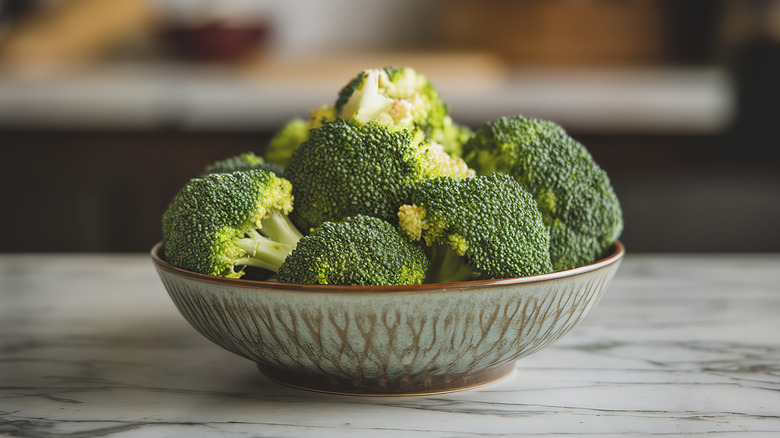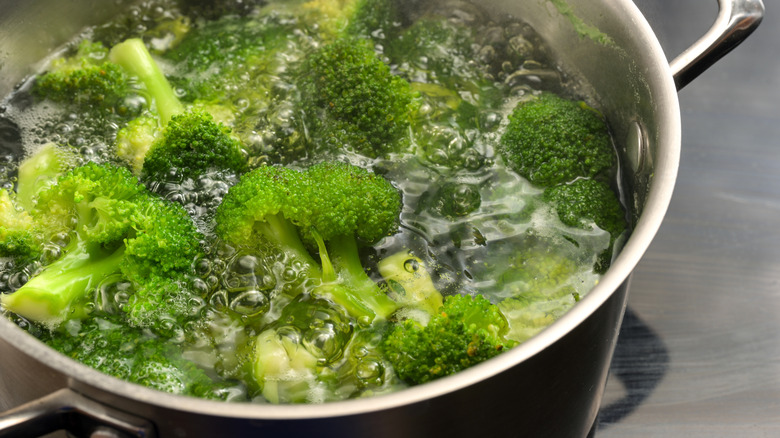Should You Blanch Broccoli? An Expert Weighs In
An important step you might be missing when cooking broccoli is blanching it first. The technique entails placing food in boiling water or exposing it to steam for a short time and rapidly cooling it. This protects the texture, taste, and appearance of fruits and vegetables. But is blanching broccoli always necessary? To find out, Mashed asked expert Andrew "Kappy" Kaplan, host of "Beyond the Plate Podcast" and Foundation for Fresh Produce Have A Plant ambassador, for his take. "It's not always crucial at home," Kaplan shares. "I roast broccoli without blanching — just toss it with oil, salt, and pepper and roast."
Delicious roasted broccoli is all about crispness and caramelization that add a pop of flavor. Blanching it first isn't needed if this is the effect you're trying to achieve. And for the crispiest texture, you should be smashing broccoli before popping it in the oven. Crispy air fryer broccoli is also simple, quick to make. and won't require blanching.
There are other cooking methods where blanching isn't ideal. For example, if you're using a wok or high-heat sautéing, Kaplan says you can skip blanching. "Smaller florets and a quicker cook time result in a slightly crunchy texture that's perfect."
The right way to blanch broccoli
Andrew "Kappy" Kaplan points out that restaurants tend to blanch broccoli to preserve its bright green color and make it easier to cook to order quickly. If you do decide to blanch, Kaplan has some expert tips on the best way to do it. "After blanching, shock it in ice water to stop the cooking and lock in the bright green color," Kaplan advises.
Skipping the ice bath won't be the end of the world. However, according to Kaplan, it serves a useful purpose. "If you wind up overcooking the broccoli in the water or not shocking it, you risk that bright green color turning to more of a dull green or even army green — not as appealing to the eye." The broccoli only needs a minute or two in the cold water, so it's an easy step to include whenever you're cooking broccoli.
If you blanch your broccoli before freezing it to use later, Kaplan suggests making sure you dry it first. "Any remaining moisture can lead to unwanted ice crystals, affecting texture and flavor," he says. You can do this by letting it hang out on a baking sheet lined with a paper towel.

